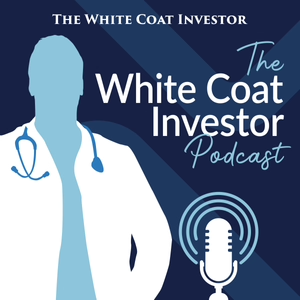
Will inflation ever get back to 2%?
08/02/24 • 17 min
Watch the video version on YouTube.
Before 2021, the United States hadn’t seen a major bout of inflation for almost 40 years. And even when inflation peaked in June 2022, consensus estimates showed that most thought inflation would be almost back to 2% by the end of 2024. However, the journey to 2% has been more challenging than expected. Since mid-2023, inflation has remained in the 3-4% range, primarily due to persistently high shelter and auto insurance prices. This has caused the Fed to be on an extended pause. However, the latest CPI report brought some positive news, showing a month-over-month decline in prices for the first time in over a year. Year-over-year CPI inflation now sits at 3.0%, still well above a number consistent with the Fed’s 2% target for the personal consumption deflator.
This episode explores if inflation can get back to its 2% target, the potential obstacles, and whether inflation even needs to be 2%. With this and the outlook for short-term interest rates being among the most dominant drivers of financial markets today, we think this discussion will be particularly useful.
To help us dive deeper into this question, Mary Park Durham, Research Associate, will be interviewing the usual host, Dr. David Kelly, Chief Global Strategist for J.P. Morgan Asset Management.
Watch the video version on YouTube.
Before 2021, the United States hadn’t seen a major bout of inflation for almost 40 years. And even when inflation peaked in June 2022, consensus estimates showed that most thought inflation would be almost back to 2% by the end of 2024. However, the journey to 2% has been more challenging than expected. Since mid-2023, inflation has remained in the 3-4% range, primarily due to persistently high shelter and auto insurance prices. This has caused the Fed to be on an extended pause. However, the latest CPI report brought some positive news, showing a month-over-month decline in prices for the first time in over a year. Year-over-year CPI inflation now sits at 3.0%, still well above a number consistent with the Fed’s 2% target for the personal consumption deflator.
This episode explores if inflation can get back to its 2% target, the potential obstacles, and whether inflation even needs to be 2%. With this and the outlook for short-term interest rates being among the most dominant drivers of financial markets today, we think this discussion will be particularly useful.
To help us dive deeper into this question, Mary Park Durham, Research Associate, will be interviewing the usual host, Dr. David Kelly, Chief Global Strategist for J.P. Morgan Asset Management.
Previous Episode

How long before the next recession?
Watch the video version on YouTube.
Going into 2023, almost everyone was predicting a recession within the next 12 months. However, what we saw was quite the opposite: the U.S. economy grew at a 2.5% year-over-year pace, and the unemployment rate stayed below 4%. This positive momentum has continued into this year, although the economy is gradually cooling.
This robust economic performance has been puzzling because many of the typical recession indicators have been flashing red for a while. The U.S. had two consecutive quarters of negative growth in 2022, the yield curve remains inverted, and credit markets are notably tighter. Despite these warning signs, the U.S. economy has managed to stave off a recession and appears resilient to higher interest rates. This raises the question: how long can the U.S. continue to avoid a recession, and if one were to occur, what would likely trigger it?
To help us dive deeper into this question, Mary Park Durham will be interviewing the usual host, Dr. David Kelly, Chief Global Strategist for J.P. Morgan Asset Management.
Next Episode

How will rising federal debt impact the markets and the economy?
Watch the video version on YouTube.
Deficit spending is not at all a new phenomenon in the United States. In fact, it is the norm, and the U.S. has run a budget deficit in 81 of the last 95 years, or 85% of the time since 1929. What is abnormal, however, is how large the pile of U.S. debt has grown relative to the broader economy. In fiscal year 2023, U.S. debt held by the public ballooned to $26.3tn, or a striking 97% of GDP, while the budget deficit rose to 6.2% of GDP, and projections from the Congressional Budget Office suggest that the debt dilemma may only get worse in the coming years. With the election quickly approaching, and last year’s debt ceiling and downgrade drama still fresh in investors’ minds, we often get asked “How will rising federal debt impact the markets and the economy?”
To help us dive deeper into this question, Brandon Hall, Research Analyst, interviews the usual host of the show, Dr. David Kelly, Chief Global Strategist for J.P. Morgan Asset Management.
If you like this episode you’ll love
Episode Comments
Generate a badge
Get a badge for your website that links back to this episode
<a href="https://goodpods.com/podcasts/insights-now-15380/will-inflation-ever-get-back-to-2-65895366"> <img src="https://storage.googleapis.com/goodpods-images-bucket/badges/generic-badge-1.svg" alt="listen to will inflation ever get back to 2%? on goodpods" style="width: 225px" /> </a>
Copy




